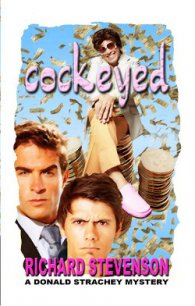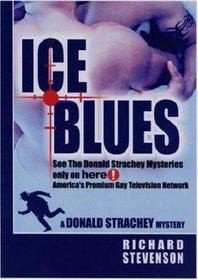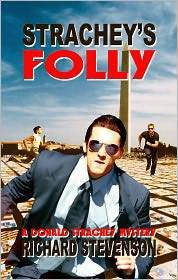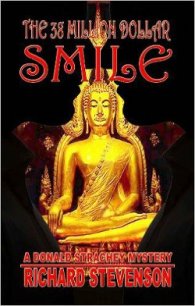A Shock to the System - Stevenson Richard (читать книги онлайн без регистрации TXT) 📗
"It was a combination of Elavil and Scotch. The mother is something of a boozer herself and maybe delusionary. But the one thing that's more or less plausible in her account is that she knew her son's mental state and she's certain he had not been suicidal. So I'm going to ask around a little and talk to Bierly before I decide whether or not to take Mrs. Haig's money. She stuffed a retainer check in the bun basket at Le Briquet and shoved it across the table toward me, but I handed it back for now. I'm meeting Bierly for an early dinner at Millpond, so I won't be home until eight or nine."
"I'm glad you're meeting Bierly in the mall if he's violence-prone."
"That's Mrs. Haig's story, but who knows. It is her assertion that after Bierly attacked someone, the guy was going to press charges, but her son bought him off before the cops were notified. And here's the intriguing part. The man Bierly supposedly threatened to kill was Vernon Crockwell."
This elicited a sound that was part guffaw and part snort. "My, my. Herr Doktor Crockwell. Was Bierly in Crockwell's treatment group—getting cured of his sexual deviancy?"
"They both were. It's where they met, according to Mrs. Haig."
"If subjecting yourself to Crockwell isn't incitement to murder, I don't know what is. No wonder Bierly is full of rage and confusion. It sounds as if you should approach him very gingerly, Don."
"I'm meeting him in a mall pizzeria, not in a dark alley. But from what I know of the homosexuality cure programs, people tend to come out of them either zombielike or with a healthy anger directed not at themselves or one another but at the programs they were victimized by. So, not to worry."
"I will. I do."
"I know. Maybe I'll bring you a lovely gift from Beautiful Thingies to help you feel better. A Gucci waterpick cozy. Or a Georg Jensen nipple ring."
"Just watch out for your own beautiful thingie."
"I'll make a note."
3
The darling buds of May had popped out even on the genetically stunted arboreal species around the Millpond Mall parking lot, and the air was fresh after a spring shower. All but glacier-ridden from November to March—and hot and sopping as Bangladesh in summer—Albany during a brief spring and briefer fall was not only fit for human habitation but certifiably pleasant. Crossing the newly washed tarmac, I'd have felt downright jaunty if I'd driven out to Millpond for a movie or a pack of clean sweat socks instead of an interview with the object of a scurrilous accusation of homicide that was conceivably true.
Bierly had suggested we meet at the Irish-pub-style pizza-and-beer joint across from the cineplex (Timmy had once said, "The pizza here is definitely Irish"), and I spotted Bierly at a table in the back, away from the bar and the sports rowdies.
"So, what did Phyllis have to say about me?" he said, looking curious and mildly skeptical but with no apparent fear of what my answer might be. I had told him on the phone only that I was considering investigating Paul Haig's death for Mrs. Haig and that she had suggested I interview Bierly.
"Her opinion of you is poor," I said, pulling up a chair. "But I'll bet you already knew that."
He laughed, but without amusement. "When Paul and I lived together, she'd get lit and call the apartment about once a week. Whenever I answered the phone, she'd start off by saying, 'Well, if it isn't Buttfucker Bierly.' That says it all about what Phyllis Haig thought of me. It also tells you what she really thought of
Paul. . . although she'd never admit what she actually thought of Paul—even to herself. To her little boy, who could do no wrong, she was nice as pie."
He said this less with bitterness than with bemused resignation. What I had taken to be shyness when I'd seen Bierly at gay political events now seemed another kind of reticence altogether, the holding back of a man with reduced expectations of how other people were going to regard him. I remembered him more clearly now, and he hadn't changed since I'd last seen him: about thirty, with curly black hair and big, wary dark eyes in one of those pleasing but not-quite-locatable, all-over-the-map American faces that suggest some of each of the auld sod and the Rhine and Calabria and maybe even pre-Columbian Vera Cruz. He looked muscular under the white dress shirt he had on, sleeves rolled up to mid-forearm, with a paisley necktie roller-coastering down a well-developed chest.
I said, "Mrs. Haig believes that Paul did not commit suicide. She told me he was not depressively suicidal and would never have taken his own life. Did you know that this was her belief?"
A curt nod. "Oh, I certainly knew that."
"She told you?"
A hard look. "The police are the ones who told me. Phyllis and I have not spoken since Paul's funeral in March." He watched me grimly, waiting for what—it now dawned on me—he had known was coming since I had sat down.
Dragging it out unnecessarily, I said, "And the police raised the possibility with you that Paul's death might not have been suicide?"
He grunted. "They did raise that possibility."
A waiter in a white shirt and black bow tie appeared and asked if we were ready to order or if we needed a few more minutes. I asked for a draft and said we needed a few more minutes. After the waiter went away, I said to Bierly, "What evidence did the police have that pointed away from suicide toward accidental death? Or homicide, of course."
Bierly had been absently rotating a beer glass on the tabletop, but suddenly he stopped. "Now look. I know she thinks I killed Paul," he said tightly. "So let's just quit playing these fucking games. Can we just do that?" His face was red and the muscles in his forearms were taut, and he didn't look so philosophical anymore.
"That suits me," I said.
Bierly started rotating his glass again, faster this time. "One of the cops told me the line of crap she gave them—I was violent, and I was jealous, and I was a crazy queer who murdered Paul for his money, and I tried to cover it up by making it look as if her happy, well-adjusted little boy had committed suicide. Jesus, that woman!" Veins throbbed at the sides of his temples and on the big hairy hand that worked the beer glass.
I said, "You and Phyllis didn't hit it off too well, did you?"
This poor attempt to lighten Bierly's mood failed. He said, "She hired you to get me, didn't she?" Now the veins were bleeping faster. "The police checked me out and found out I had an alibi for the night Paul died—I drove my landlady to Utica, where her daughter had been in a car crash, and we didn't get back until four in the morning—but of course that wasn't enough for Phyllis. Phyllis knows what Phyllis knows. How much is she paying you to frame me, or just harass me, or whatever it is this is supposed to be?"
He regarded me as if I were a plague bacterium deserving of fear, scorn, and, if it could be arranged, extermination. I said, "I have no interest in persecuting you, Larry. I haven't agreed to actually work for Phyllis Haig. I wanted to talk to you first. That's why I'm here. I'm not sure I want to get mixed up in this at all. The situation would interest me only if I became convinced that Paul Haig had actually been murdered. But you seem to be telling me that that was not the case."
The rotating beer glass came to a halt. "Oh, is that what I seem to be telling you? I don't think so."
"You're not telling me that Paul wasn't murdered?"
The waiter came back with my draft and asked if we'd like to order or if we needed a little more time. I said we needed a little more time.




